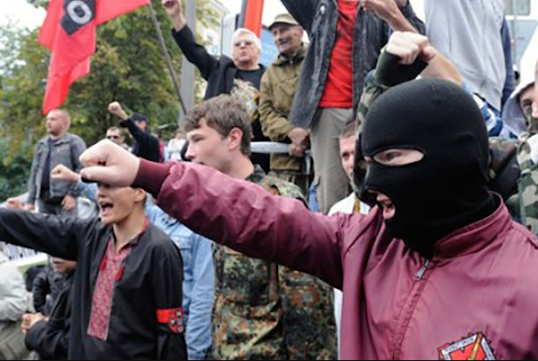A couple of weeks before Vladimir Putin announced his ‘special military operation’ in Ukraine, he met in the Kremlin with Germany’s chancellor Olaf Scholz. At their joint press conference following the meeting, Putin mentioned in passing that Ukraine is controlled today by neo-Nazis. This remark was famously ridiculed by Scholz as “laughable,” thereby earning for him the Kremlin’s utter contempt. German-Russian relations have undergone a sharp deterioration ever since, with Germany gradually stepping up its supplies of cutting-edge lethal weaponry to Kiev and Russia, in its internal political discussions, placing Germany alongside the United States and Britain as de facto ‘co-belligerents’ which may be subjected to Russian missile attacks if the war escalates further.
At the time of the exchange of courtesies between Putin and Scholz in February, I wrote an essay in which I tried to explain the background to Russian claims of rampant Nazism in Ukraine, which sounded very odd to Westerners but found a very receptive audience among the Russian population, where evocations of Nazism arise at every annual May 9th celebration of Victory in Europe Day, marking the end of WWII. As I noted then, one source of Russian allegations was the celebration by official Kiev of the ultra-nationalist Stepan Bandera, a Nazi collaborator of the German forces in WWII who practiced vicious ethnic cleansing against Jews, Russians and Poles. Statues are erected to him; streets are named after him across Ukraine.
Of course, the numbers of actual neo-Nazi groups in Ukraine before and since 2014 have been very small as a percentage of the overall population. In the parliamentary and presidential elections that have taken place since the United States installed its preferred regime in Kiev in February 2014, the neo-Nazi candidates have not scored more than several percentage points. However, from the first days of the February coup d’etat, neo-Nazis have held the key ministerial posts in defense and the security apparatus of the Ukrainian government, effectively calling the shots in foreign policy and the confrontation with Russia. (more...)
Russian allegations of rampant Nazism in Europe

No comments:
Post a Comment